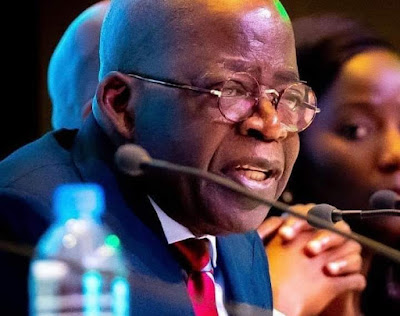With necessary tax and duty waivers approved by President Tinubu in December 2023, the PCNGI committee is partnering with the private sector to deliver the promise on the initiative
The presidency has disclosed that the Presidential CNG Initiative (Pi-CNG), which was launched in October 2023, is set to deliver compressed natural gas (CNG) for mass transit, ahead of the first anniversary of the Bola Tinubu administration.
The initiative, which was designed to cushion the harsh economic effects of the announcement of the end of the petrol subsidy regime by President Tinubu on May 29, 2023, is built to provide a cheaper, safer, and more climate-friendly energy alternative.
According to a statement issued on Sunday by Special Adviser to the President on Information and Strategy, Bayo Onanuga, the Michael Oluwagbemi committee, which is driving the initiative, has delivered some major foundational reforms to enable the new CNG and Electric Vehicles future the President promised.
The federal government, as part of its many intervention programs, to reduce the burden of the increase in pump price on the masses, provided N100 billion (part of the N500 billion palliative budget) to purchase 5,500 CNG vehicles (buses and tricycles), 100 electric buses, and over 20,000 CNG conversion kits. This will also facilitate the development of CNG refilling stations and electric charging stations.
In all, over 600 buses are targeted for production in the first phase that will be accomplished this year, just a new plant on the Lagos-Ibadan Expressway will assemble thousands of tricycles.
“With necessary tax and duty waivers approved by President Tinubu in December 2023, the PCNGI committee is partnering with the private sector to deliver the promise on the initiative. The private sector has responded with over $50 million in actual investments in refuelling stations, conversion centres, and mother stations.
“Also, a safety policy document on 80 standards and regulations that must be strictly adhered to by operators has been developed and approved to ensure CNG conversions are done safely and reliably.
“The deployment of CNG buses and tricycles and the vision to get at least one million natural gas-propelled vehicles on our roads by 2027 will mark a major energy transition in our country’s transportation industry. The use of more expensive diesel and PMS will gradually be phased out, when many vehicles, including trucks run on natural gas, which our nation has in abundance in at least 30 out of the 36 states of the federation.
“As studies have shown, one of the main causes of air pollution is primarily the amount of gases emitted by gasoline and diesel engines. To reduce the pollution, some countries of the world, such as India, China, Iran, Pakistan, Brazil, Argentina, and Italy have built fleets of natural gas-powered vehicles, instead of going the route of relying on liquid petroleum products and propelled vehicles.
“Natural gas vehicles reduce tailpipe emission by up to 40 percent, and Nigeria’s commitment to this course will enable her to meet her nationally determined commitments (NDCs) under the Paris Climate Accord to which we are signatories.
“From the end of May, Nigeria will take some baby steps to join such nations that already have large fleets of CNG vehicles.
“Remarkably, the Tinubu administration, in driving the nation to the desired destination, has flagged open a new industry, along with thousands of new jobs.
“Four plants owned by JET, Mikano, Mojo, and Brilliant EV located in various parts of the country are involved in the assembly of the Semi Knocked Down (SKD) components of the CNG buses. JET, which has received the SKD parts is coupling the buses in Lagos and is working towards delivering 200 units before the first anniversary of the Tinubu administration.
“Brilliant EV will assemble electric vehicles. It is awaiting the SKD parts, which will arrive in due course. The electric vehicles it will produce are meant for states such as Kano and Borno, which do not have access to CNG for now.
“They will also be available in key Nigerian cities and university campuses. It must be noted that soon-to-be-completed gas pipeline projects initiated by the Buhari administration and being completed by NNPCL (the AKK Pipeline) will take gas into the hinterlands of North East and North West where there is current paucity.
“In all, over 600 buses are targeted for production in the first phase that will be accomplished this year.
“A new plant on the Lagos-Ibadan Expressway will assemble thousands of tricycles. The SKD parts manufactured by the Chinese company LUOJIA in partnership with its local partner to support the consortium of local suppliers of CNG tricycles are set for shipment to Nigeria and are expected to arrive early in May. About 2,500 of the tricycles will be ready before May 29, 2024.
“Thousands of conversion kits for petrol-powered buses and taxis that want to migrate to CNG are also ready with CNG cylinders. The Federal Government intends to provide them at subsidized rates, especially to commercial vehicle drivers to bring down the cost of public transportation.
“As part of private sector collaboration, NIPCO and BOVAS are involved in offering refilling services for the CNG vehicles and also serving as conversion centres. NIPCO is setting up 32 stations nationwide to offer the services. The company has completed the set-up of four of the CNG stations.
“Likewise, BOVAS is setting up eight stations in Ibadan, two each in Ekiti, Abuja and four in Ilorin. MRS is also involved. It is making efforts to announce where its refilling stations and conversion centres will be.
“The NNPC Limited which had launched an on-and-off CNG initiative in the past is joining the new initiative. It is expected soon to announce the locations for CNG refilling and CNG conversion centres nationwide.
“In addition, the PCNGI is working with 22 other agency partners, including the Standards Organisation of Nigeria(SON) and Nigeria Automotive Design and Development Council to deliver 80 Natural Gas Vehicle Conversion and Associated Appliances Standards for the country.
“For proper monitoring, PCNGI will also launch MYCNG.NG App. The app will embed the Nigeria Gas Vehicle Monitoring Systems, which will show CNG conversion and refueling sites in the country.
“The Tinubu administration is an enabler of the evolving CNG industry. In collaboration with the private sector, the PCNGI is set to deliver 100 conversion workshops and 60 refueling sites spread across 18 states before the end of this year.
“The vision of Mr President to deliver one million gas vehicles cannot be possible without the private sector, including the RTEAN, NARTO, NURTW, and players in the downstream sector of the transportation chain and financiers.”


















